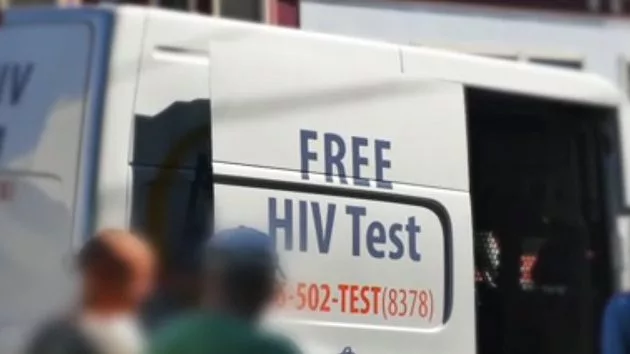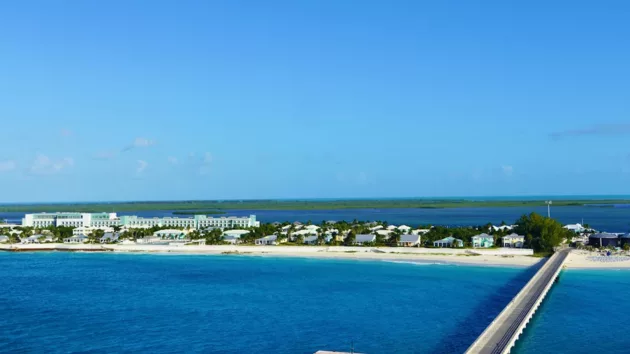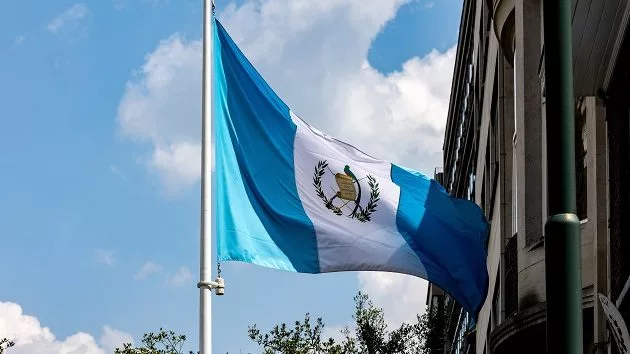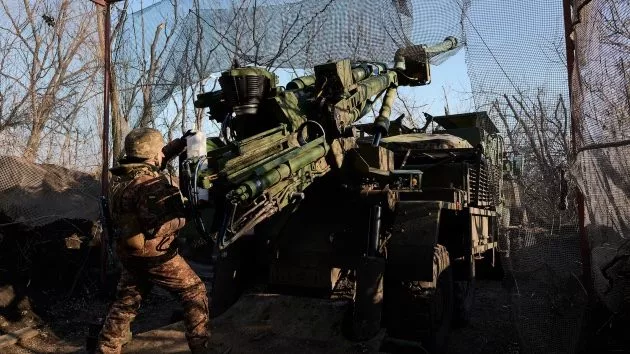
President Donald Trump’s freeze of U.S. foreign humanitarian aid and shuttering of the U.S. Agency for International Development is having devastating consequences globally, several humanitarian nongovernmental organization leaders told ABC News.
“The United States Government provides about 70% of all funding for HIV and AIDS globally, and so pausing any of that is a big shock to the system,” said Christine Stegling, a deputy executive director of the Joint United Nations Programme on HIV/AIDS (UNAIDS) and an assistant secretary-general of the United Nations.
While Secretary of State Marco Rubio said last week the State Department can offer waivers for some of the most critical aid efforts to continue, Stegling said there is confusion over how to implement the waivers and what programs qualify.
“Community clinics are closed because communities are not sure what the guidance is, and they’re not sure what costs can be covered, and they’re afraid that they will be asked to repay services that they have charged to U.S. government contracts,” Stegling told ABC News.
Stegling warned that if the Trump administration halts all funding to HIV and AIDS programs, more than six million people could die of AIDS-related causes by 2029.
“These are people’s lives that are really at risk here that we need to consider as we’re thinking about the future,” Stegling said.
Since the Russian invasion in 2022, Ukraine has been the top recipient of U.S. foreign assistance, according to USAID. Yuriy Boyechko, the founder and president of Hope for Ukraine, works with U.S.-funded organizations to provide firewood to Ukrainian civilians living on the front lines.
“Firewood is a lifeline right now for the people in Ukraine,” Boyechko told ABC News. “They don’t have electricity, they don’t have gas. They rely on firewood to keep them warm in freezing temperature[s], and they rely on their firewood to cook their meals.”
Boyechko said that unless other organizations can step in and distribute that wood, Ukrainians will be left in the freezing cold.
“It’s created a lot of distrust inside of the population inside of Ukraine because we [have] always been relying on [the] United States,” Boyechko said. “[The] United States got our back in the darkest period of time, and now, since USAID is pulling away, a lot of people [are] losing hope.”
Search for Common Ground, a global peace-building organization, receives about 40 percent of its funding from the U.S. CEO Shamil Idriss said the aid freeze has hurt their work in eastern Congo, where a war has reemerged.
“We had to freeze the mobilization in the east of the country that was intended to prevent recruitment into the rebel movement that is gaining ground there,” Idriss told ABC News. “Critically, we had to stop broadcasting on a network of radio stations in the east of the country that provide a lifeline for people. So literally, today, people are running in the wrong direction. They’re fleeing towards violence, rather than away from it.”
Idriss said his organization is making the case that its work aligns with the foreign policy priorities of the Trump administration and hopes to work with them, but the way in which the aid was immediately cut has caused concern.
“The stop work orders that we received across more than 30 programs and projects, no two were alike. Some of the information was inconsistent, ambiguous or even contradictory,” Idriss said. “Chaos has really ensued. We’re hopeful that, you know, cooler heads will prevail within the administration shortly.”
Noah Gottschalk, senior director for international advocacy at HIAS, said the Jewish refugee and immigrant aid organization has also experienced “total and complete chaos.”
“We’ve had to stop programs, for example, with survivors of violence against women in Latin America, in countries like Colombia, in countries like Ecuador, women who fled abusive partners, and the support that we provide them is often the difference between them being forced to maybe return to those abusive former partners, or becoming vulnerable to human trafficking,” Gottschalk told ABC News.
Gottschalk said he’s worried the freeze in humanitarian aid could have foreign policy implications.
“The U.S. abandoning some of the most desperate people in the world right now absolutely will create a vacuum, and I’m deeply concerned about who is going to fill that vacuum, whether it’s armed groups, whether it’s cartels, human traffickers,” Gottschalk said.
Copyright © 2025, ABC Audio. All rights reserved.







